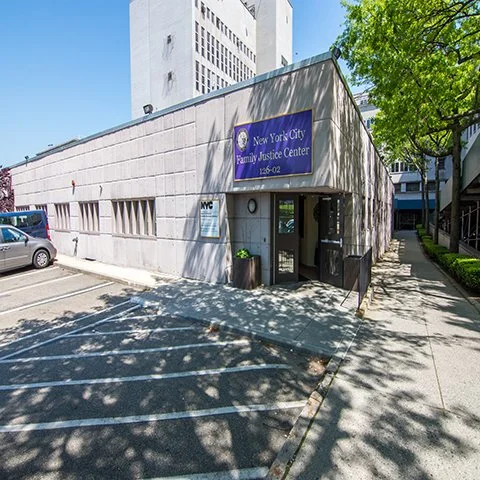Aiding survivors at the Queens Family Justice Center
/The Queens Family Justice Center offers survivors of domestic violence an array of resources and support. Photo via NYC.gov
By Rachel Vick
The names of domestic violence survivors in this story have been changed to protect their identities.
Several years ago, after learning of the abuse his daughter faced at the hands of her stepbrother, Chris faced a difficult decision head-on and urged his teenage daughter to call the police. The two packed what they could and turned to the Queens Family Justice Center for support at a time where they “didn’t really know what to do.”
They were able to find a place to live with help from New Destiny Housing and connect with mental health resources and financial planning services to ease the transition from trauma to reclaiming their independence.
“We didn’t really know what to do and they were able to make arrangements,” Chris told the Eagle. “I didn't know [the Family Justice Center] was in existence but it was reassuring — I was 40 years old, I never went through anything like that. They made me feel comfortable… and made sure she was alright, which was my priority as well.”
“Asking for help is difficult on its own but… there are men going through abuse and suffering and they're just trying to hold their family together but… they’re not stuck, there are better alternatives,” he added, emphasizing the importance of destigmatizing domestic violence that affects men.
Nestled next to the Queens Criminal Court in Kew Gardens, the center is stocked with pantry items, and safe spaces for survivors of domestic violence to wait during court proceedings or for housing placement, in addition to support services.
There, staff, service providers and community organizations help people like Chris and his daughter get back on their feet and get the resources they need without compromising dignity or agency. Specialists are available to help with safety planning, applying for public benefits, mental health services and legal help for orders of protection, divorce and immigration proceedings.
The wraparound services keep even the youngest individuals affected in mind, and Sanctuary for Families offers a daycare-like space with games, toys and books for children while their caregivers meet with providers.
Each case presents different challenges and needs, QFJC leadership told the Eagle. CBOs from across the borough, each with their own networks and resources, are located within the center.
Jessica, another client, worked with Shanikka White, a senior case manager with the Women's Prison Association, in the search for housing and getting new copies of documents like her birth certificate and identification.
She found out that she received her Section 8 voucher just before sitting down to speak with the Eagle — the excitement and relief from both Jessica and the members of her support system from the center who were in the room was palpable. She may be leaving behind her beloved neighborhood in Queens but said she’s excited to embrace a fresh start and a space all her own.
“I’m so grateful for the organizations,” Jessica said, “I’m tongue tied. A lot of people just talk and want a paycheck but I really feel the care, concern and love from the people I work with and that’s unusual; it’s wonderful.”
“I was so lost, used and abused; I was helpless but upon coming here [there was help],” she added, letting other survivors know that they’re not alone. “I feel like I’m on top of the world. There’s hope [now.] I’m alive and it feels great.”
The Mayor’s Office to End Domestic Gender Based Violence QFJC Executive Director Susan Jacob has spent more than a decade with the center, where Safe Horizon, Korean American Family Service Center and Arab-American Family Support Center are among the organizations working to break through language barriers for a portion of the QFJC’s 74.8 percent of clients born outside of the country.
QFJC Executive Director Susan Jacobs (left) with Queens District Attorney Melinda Katz. Eagle Photo by Rachel Vick
“We support survivors where they are,” Jacob said. “Regardless of genders, sexual orientation, we serve everyone. Anyone can come”
Though services have expanded over the years with the changing environment — like expanded telephone services during lockdown — the commitment to service remains.
“I have amazing colleagues and partners — rock stars — who are so devoted to working with survivors,” she said. “I’m very lucky.”
The Queens Family Justice Center can be reached at 718-575-4545. The 24-Hour NYC Domestic Violence hotline at 1-800-621-HOPE, NYC’s Crime Victims Hotline at 1-866-689-HELP, or the National Human Trafficking Hotline at 1-888-373-7888.





